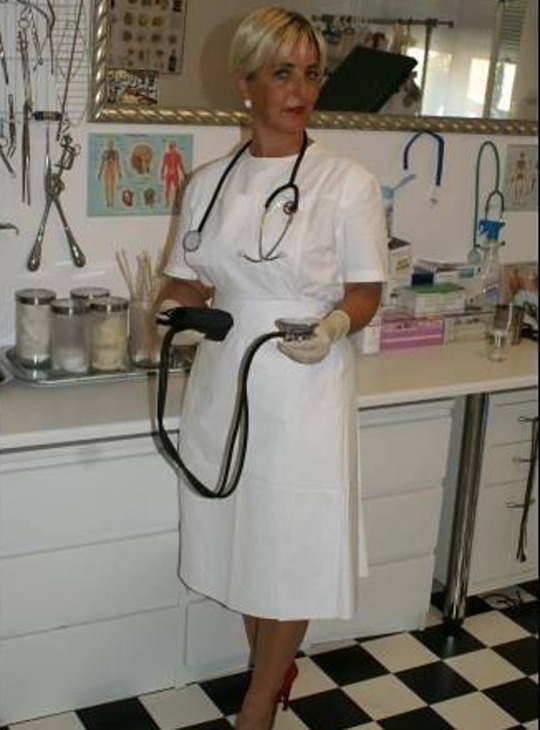#medical regulator
Note
BINAAAA!!! I love your catboys and your klance everything!! Are you still thinking about opening commissions? ;-;
hiii!! thank you i'm happy u like all my stuff waaa ;v; 💖
i still want to open up for commissions, especially since this year i'd like to replace my current tablet, but i'm! extremely depressed right now unfortunately!
it's hard to do much of anything right now. o(-( i'm not taking very good care of myself, but i'm trying my best and hopefully i'll feel better soon..
once i'm in a better head space it'll be much easier to handle opening for them.. sorry for the wait 🙏
(also in other news, i spent the last week or so gradually restoring my childhood teddy bear, Bearbear..
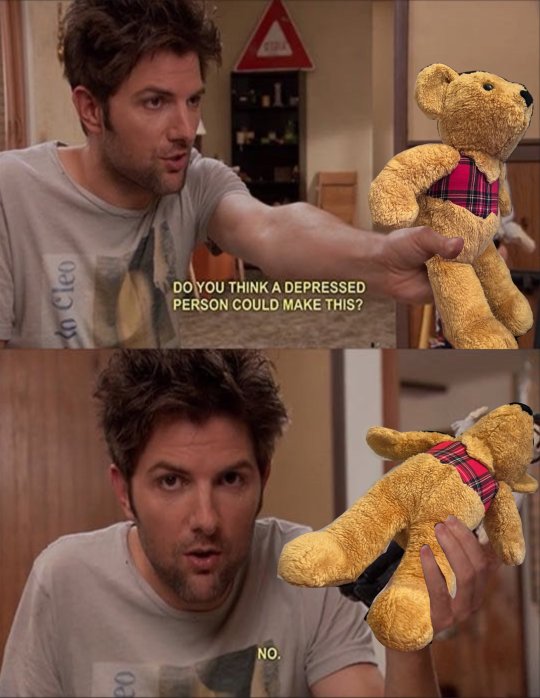
LOL)
#binask#it's a strange unfortunate place to be in where i can tell my current medication is helping while also giving me the capacity to realize#oh i can't regulate my emotions at all because i've been dissociating for the better half of my life.............#oopsies#augh i'm tired of feeling like this
93 notes
·
View notes
Text
Really extra tired of black and white thinking around COVID like can you guys activate your brain and understand that lockdown was NECESSARY to prevent massive economic and social breakdown that would have been induced by our entire population getting infected at once before we figured out how to treat it
Not to mention the whole "young people didn't need to worry about dying they shouldn't have been locked down what about their social lives!!11!!!"
Hi. Hello. I am a youth that was disabled by COVID how are you doing today. Oh, you're not disabled by COVID? Cool shut the fuck up forever.
#not this book talking about seven papers between 2003 and 2014 being a 'wealth of information' and 'entire catalogue of research'#you aren't a scientist are you sweetie#less than a paper a year on a subject and you're claiming we should have been setting aside everything to treat sars cov 2 patients based on#that alone????#sweetie#BUT OUR FREEDOMS!!!#but sweetie the medical complex#BUT THEIR SOCIAL LIVES!!#but dear my ability to walk and regulate my heart beat at the same time#I'm bitter I'm so so bitter#these were hard choices made by pros and cons and risk management#was staying home for a while really worse than the entire medical industry imploding even worse than it already did#and yes by complaining about the government MAKING you stay home you are in fact proving that you wouldn't have otherwise#ffs
29 notes
·
View notes
Note
She sells seashells on a seashore. But the value of these shells will fall.
Due to the laws of supply and demand, no one wants to buy shells 'cause there's loads on the sand.
Step one, you must create a sense of scarcity. Shells will sell much better if the people think they're rare, you see.
Bear with me, take as many shells as you can find and hide 'em on an island stockpile 'em high until they're rarer than a diamond.
Step two, you gotta make the people think that they want 'em. Really want 'em, really fuckin' want 'em, hit 'em like Bronson.
Influencers, product placement, featured prime time entertainment. If you haven't got a shell then you're just a fucking wasteman
Three, it's monopoly, invest inside some property. Start a corporation, make a logo, do it properly.
"Shells must sell", that will be your new philosophy. Swallow all your morals, they're a poor man's quality
Four, expand, expand, expand. Clear forest, make land, fresh blood on hand
Five, why just shells? Why limit your self? She sells seashells, sell oil as well!
Six, guns, sell stocks, sell diamonds. Sell rocks, sell water to a fish, sell the time to a clock
Seven, press on the gas, take your foot off the brakes, run to be the president of the United States.
Eight, big smile mate, big wave that's great. Now the truth is overrated, tell lies out the gate
Nine, polarise the people, controversy is the game. It don't matter if they hate you if they all say your name
Ten, the world is yours. Step out on a stage to a round of applause
You're a liar, a cheat, a devil, a whore.
And you sell seashells on the seashore.

#ask the deerstalker medic#you did it. you broke capitalism without any checks or regulations on the free market down to its bare essentials
44 notes
·
View notes
Text
*taps mic* this is niche but hear me out boys
imagine the fucken nightmare it'd be to kidnap a t1 diabetic. ive kinda wanted to write a story like that sometime cause it'd just set up this wicked dynamic. blood sugar does not fuck around.
im not just talking about the hassle of aquiring a constant stream of insulin and other medical supplies. imagine that first day, the victim gets roughed up a little... and then they start acting strange. they can't answer questions, they're shaking, their eyes wander, their movements are uncoordinated. the bewilderment of the kidnapper as they watch this now barely lucid person tryna stay focused, "i didn't hit them that hard, did i?"
and then something in the victim's waistband starts beeping very loudly, like an alarm. the kidnapper finds this little device connected by a thin cord to something under the shirt. a display reads hypoglycemia - contact emergency services. oh shit. so now they have to google their way into figuring out how to treat hypoglycemia in a diabetic patient.
blood sugar is heavily influenced by adrenaline. normally this is tied to excersise - if a diabetic person is physically active, the blood sugar drops. it can also be caused by pain. if a diabetic person experiences severe pain, it's 100% a guarantee that their blood sugar will plummet very, very rapidly. in a t1 diabetic person, hypoglycemia is an altered state of consciousness. an inability to think, balance, coordinate body movement. the eyes glaze over, slow, nonsensical speech, sometimes agitation or other mood swings, ironically enough, often a reluctance to eat and drink. if it's left untreated, they will eventually lose consciousness and slip into a coma. once the blood sugar levels are back to normal, they most likely won't be able to remember what happend during and immediately prior to the hypoglycemia episode.
other things that blood sugar is influenced by includes: food (obviously), sleep patterns, temperature, mood, dehydration, drugs/alcohol/nicotine, other medications, caffeine, allergies, altitude, the time of day, the environment the person is in (being out in the sun vs. being in a dark room), etc.
just. thinking about the whole convoluted mess that'd come with this scenario. how both kidnapper and t1 victim have to do their best to adjust to this thing, because things will go south very quickly if they don't. and how that's gonna affect their overall dynamic, ykno?
#full disclosure i have a loved one with t1#they once fell down the stairs and broke their arm#and my first reaction. before we even got the person in the car to go to the er#was to go to the kitchen and grab a bunch of brick juices#and fucken systematically force feed those to them#and they STILL ended up crashing so bad they couldn't remember the first couple hours of the er visit#even tho a team of experienced medical profs were there tryna regulate it#your priorities are just different with t1 ykwim#other
61 notes
·
View notes
Text
Guys, things are getting bad for people who take SSRI's. The shortages are intentional for capital gain. The FTC is open for public comment for only 55 days. It's time to tell them how drug shortages affect us!!
31 notes
·
View notes
Text


Funniest possible attempt at friend reconnection one year later
12 notes
·
View notes
Text
The coolest gender thing in the 2009 Japanese video game persona 3 100% how hard they coded shinjiro as the dead mom
#.txt#i got soooo mad in the car driving home thinking about how his drug addiction is essentially the classic anime heart condition.#in that the only side effect of the suppressants is that they will kill him. like?#i realized for the longest time i had assumed the chest pain and sweating came from the drugs but thats. castor. obviously.#it doesnt affect his mood or his awareness its like a mood stabilizer pain relief pill?#its so odd that hes framed as like. being addicted to illegal street drugs. BY THE NARRATIVE.#when its more like hes on the most insane experimental medication that they wont even test on like. rats.#also im not fact checking any of this before posting. so i might be lying about things.#idk if it was all of strega that had trouble controlling their personas but like. chidori was because of the Experimentation.#and shinjis just like. mentally ill coded. in a bad way 😭#The inability to regulate a mood/stimuli to the point where he can be unsafe to himself or others.#broad ass symptom of disorders that are not treated well. its also interesting that its not brought on by a specific event.#like the childhood fire is there. but you have akihiko right there to directly compare it to. and hes arguably more effected by it all.#and he seems to be coping well 10+ years on like some coping mechanisms are kind of weird (protein) but nothing super out of the ordinary.#so the problem is really the october 4th incident which was just a pure honest to god accident.#the fact that it gets covered up as a car accident does feel like the best like. emotional equivalent.#because it being shinji being unable to control his persona his true representation of himself and it resulting in death is sooooo bleak#and it weighs on him for 2+ years of being suicidal and unhoused until finally he goes through with his suicide by martyrdom.#i lost the plot a little bit on the gender situation with the vague allusions to fraility when story convenient#acting as dorm den mother and cooking and sewing long hair jacket sillhouette reading like a dress#was referring to that before mental illness took over. woman under the influencing this anime boy.#long way of saying i think he should have a over the shoulder ponytail when hes older. and he should have a mood disorder.
18 notes
·
View notes
Text
I've posted many times before about how surrogacy exploits vulnerable women and turns their babies into commodities. This article is about the impact of the fertility industry on the children themselves.
‘I slept with my half-sibling’: Woman’s horror story reflects loosely regulated nature of US fertility industry
By Rob Kuznia, Allison Gordon, Nelli Black and Kyung Lah, CNN | Photographs by Laura Oliverio, CNN
Published 10:00 AM EST, Wed February 14, 2024CNN —
Victoria Hill never quite understood how she could be so different from her father – in looks and in temperament. The 39-year-old licensed clinical social worker from suburban Connecticut used to joke that perhaps she was the mailman’s child.
Her joke eventually became no laughing matter. Worried about a health issue, and puzzled because neither of her parents had suffered any of the symptoms, Hill purchased a DNA testing kit from 23andMe a few years ago and sent her DNA to the genomics company.
What should have been a routine quest to learn more about herself turned into a shocking revelation that she had many more siblings than just the brother she grew up with – the count now stands at 22. Some of them reached out to her and dropped more bombshells: Hill’s biological father was not the man she grew up with but a fertility doctor who had been helping her mother conceive using donated sperm. That doctor, Burton Caldwell, a sibling told her, had used his own sperm to inseminate her mother, allegedly without her consent.
But the most devastating revelation came this summer, when Hill found out that one of her newly discovered siblings had been her high school boyfriend – one she says she easily could have married.
“I was traumatized by this,” Hill told CNN in an exclusive interview. “Now I’m looking at pictures of people thinking, well, if he could be my sibling, anybody could be my sibling.”
Hill’s story appears to represent one of the most extreme cases to date of fertility fraud in which fertility doctors have misled their female patients and their families by secretly using their own sperm instead of that of a donor. It also illustrates how the huge groups of siblings made possible in part by a lack of regulation can lead to a worst-case scenario coming to pass: accidental incest.
In this sense, say advocates of new laws criminalizing fertility fraud, Hill’s story is historic.
“This was the first time where we’ve had a confirmed case of someone actually dating, someone being intimate with someone who was their half-sibling,” said Jody Madeira, a law professor at Indiana University and an expert on fertility fraud.
A CNN investigation into fertility fraud nationwide found that most states, including Connecticut, have no laws against it. Victims of this form of deception face long odds in getting any kind of recourse, and doctors who are accused of it have an enormous advantage in court, meaning they rarely face consequences and, in some cases, have continued practicing, according to documents and interviews with fertility experts, lawmakers and several people fathered by sperm donors.
CNN also found that Hill’s romantic relationship with her half-brother wasn’t the only case in which she or other people in her newly discovered sibling group interacted with someone in their community who turned out to be a sibling.
At a time when do-it-yourself DNA kits are turning donor-conceived children into online sleuths about their own origins – and when this subset of the American population has reached an estimated one million people – Hill’s situation is a sign of the times. She is part of a larger groundswell of donor-conceived people who in recent years have sought to expose practices in the fertility industry they say have caused them distress: huge sibling pods, unethical doctors, unreachable biological fathers, a lack of information about their biological family’s medical history.
The movement has been the main driver in getting about a dozen new state laws passed over the past four years. Still, the legal landscape is patchy, and the US fertility industry is often referred to by critics as the “Wild West” for its dearth of regulation relative to other western countries.
“Nail salons are more regulated than the fertility industry,” said Eve Wiley, who traced her origins to fertility fraud and is a prominent advocate for new laws.
Accountability in short supply
More than 30 doctors around the country have been caught or accused of covertly using their own sperm to impregnate their patients, CNN has confirmed; advocates say they know of at least 80.
Accountability for the deception has been in short supply. The near-absence of laws criminalizing the practice of fertility fraud until recently means no doctors have yet been criminally charged for the behavior. In 2019, Indiana became the second state, more than 20 years after California, to pass a statute making fertility fraud a felony.
Even in civil cases that have been settled out of court, the affected families have typically signed non-disclosure agreements, effectively shielding the doctors from public scrutiny.
Meanwhile, some doctors who have been found out were allowed to keep their medical licenses.
In Kentucky, retired fertility doctor Marvin YussmanMarvin Yussman admitted using his own sperm to inseminate about half a dozen patients who at the time were unaware that he was the donor. One of them filed a complaint to the state’s board of medical licensure when her daughter – who was born in 1976 – learned Yussman was the likely father after submitting her DNA to Ancestry.com.
“I feel betrayed that Dr. Yussman knowingly deceived me and my husband about the origin of the sperm he injected into my body,” the woman wrote in a letter to the board in 2019. “Although I realize Dr. Yussman did not break any laws as such, I certainly feel his actions were unconscionable and depraved.”
In his response to the medical board, Yussman said that during that era, fresh sperm was prioritized over frozen sperm, meaning donors had to arrive on a schedule.
“On very rare occasions when the donor did not show and no frozen specimen was available, I used my own sperm if I otherwise would have been an appropriate donor: appropriate blood type, race, physical characteristics,” Yussman wrote.
He added some of his biological children have “expressed gratitude for their existence” to him and even sent him photos of their own children. Yussman, who noted in his defense that he didn’t remember the woman who made the complaint, said his policy decades ago was to inform patients that physicians could be among the possible donors, though neither he nor the complainant could provide records that clarified the protocol.
The board declined to discipline him, citing insufficient evidence, according to case documents. Reached on the phone by CNN, Yussman declined to comment.
The story that really put fertility fraud on the national radar was that of Dr. Donald Cline, who fathered at least 90 children in Indiana. Cline’s case spurred lawmakers to pass legislation that outlawed fertility fraud but wasn’t retroactive, meaning he was never prosecuted for it. But he was convicted of obstruction of justice after lying to investigators in the state attorney general’s office who briefly looked into the case. Following that conviction in 2018, Cline surrendered his license. Cline’s lawyer did not respond to an email seeking comment.
Netflix followed up with a documentary about Cline in 2022 that inspired two members of Congress – Reps. Stephanie Bice, an Oklahoma Republican, and Mikie Sherrill, a New Jersey Democrat – to coauthor the first federal bill outlawing fertility fraud. If passed, the Protecting Families from Fertility Fraud Act would establish a new federal sexual-assault crime for knowingly misrepresenting the nature or source of DNA used in assisted reproductive procedures and other fertility treatments. The bill has found dozens of backers – 28 Republicans and 20 Democrats – amid a renewed effort to push it on Capitol Hill.
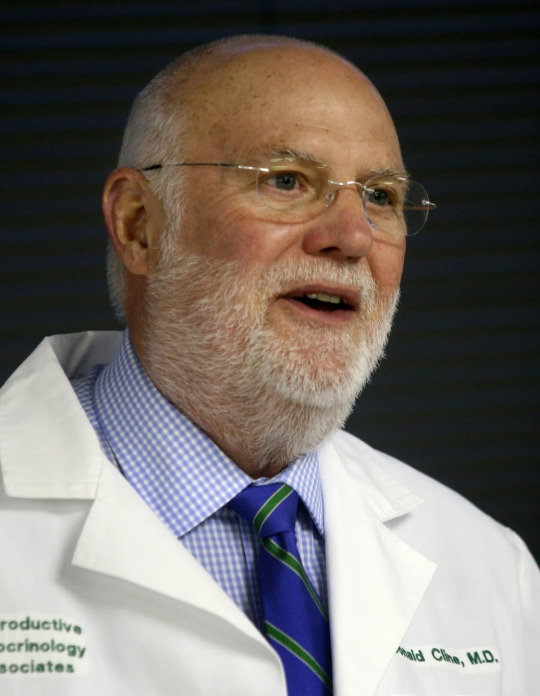
In this March 29, 2007 file photo, Dr. Donald Cline, a reproductive endocrinologist and fertility specialist, speaks at a news conference in Indianapolis.Kelly Wilkinson/The Indianapolis Star/AP/File
A group of advocates including Hill plans to go to DC to champion the bill on Wednesday.
To be sure, passage wouldn’t mean that any of the dozens of doctors who have already been accused of fertility fraud would go to prison, as the crime would have occurred before the law existed. But the measure would provide more pathways for civil litigation in such cases.
The push to better regulate the fertility industry isn’t without critics. It inspires unease – if not outright opposition – from some who fear any industry crackdown could have the unintended effect of making the formation of families less accessible to the LGBTQ community, which comprises an outsized share of the donor-recipient clientele.
“I think we should pause before creating additional criminal liability for people practicing reproductive medicine,” said Katherine L. Kraschel, assistant professor of law and health sciences at Northeastern University. “It gives me great pause … to say we want the government to try to step in and regulate what amounts to a reproductive choice.”
Some experts also point out that the advent of take-at-home DNA tests by companies such as 23andMe and Ancestry has pretty much stamped out fertility fraud in the modern era.
“To my knowledge, the majority of fertility fraud cases took place before 2000,” said Julia T. Woodward, a licensed clinical psychologist and associate professor in psychiatry and OBGYN in the Duke University Health System, in an email to CNN. “I think it is highly unlikely any person would engage in such practices today (it would be too easy to be exposed). So this part of the landscape has improved significantly.”
But activists in the donor-conceived community still want laws, in part to provide pathways for civil litigation, and also to send a message to any medical professional who might feel emboldened by the lack of accountability.
“Let’s say arguably that it doesn’t happen anymore,” said Laura High, a donor-conceived person and comedian who, with more than 600,000 followers on TikTok, has carved out something of a niche as a fertility-industry watchdog on social media. “Pass the f**king legislation just in case.
“Why not just out of the optics – just out of a, ‘Hey we’re going to stand by the victims.’ Let’s just do this. We know it’s never going to happen anymore, but let’s just make this illegal.”
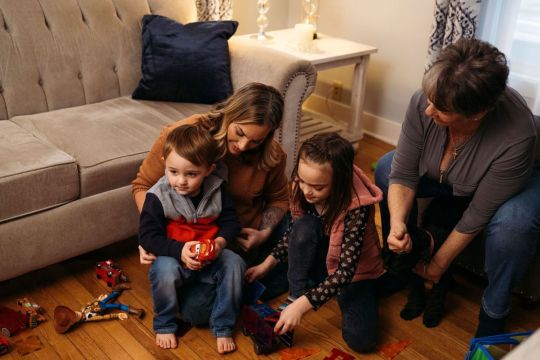
Victoria Hill and her two children play with toys in the living room of her mother's house in Wethersfield. Laura Oliverio/CNN
‘You are my sister’
The lack of a law in Connecticut appears to have been a stumbling block for a pair of siblings seeking recourse for what they allege is a case of fertility fraud.
The half-siblings – a sister and brother – sued OBGYN Narendra Tohan of New Britain in 2021, saying he deceived their mothers when using his own sperm in the fertility treatments.
He has derailed the suit with a novel defense, arguing successfully that it amounts to a “wrongful life” case, which typically pertains to people born with severe life-limiting conditions and isn’t recognized in Connecticut. Tohan, who is still practicing, did not return an email or call to his office seeking comment. The siblings are appealing the ruling.
Madeira, the expert in fertility fraud from Indiana University, called the “wrongful life” decision absurd.
“In fertility fraud, no parent is saying that – no parent is saying I would have gotten an abortion,” she said. “Every parent is saying, ‘I love my child. I just wish that my wishes would have been respected and my doctor wouldn’t have used his sperm.’”
And then there is Dr. Burton Caldwell, who declined CNN’s request for an interview. One of his apparent biological children decided to sue him last year, even though she knows it will be an uphill battle without a fertility fraud law on the books. Janine Pierson and her mother, Doreen Pierson, accuse Caldwell – who stopped practicing in the early 2000s – of impregnating Doreen with his own sperm after having falsely told her that the donor would be a Yale medical student.
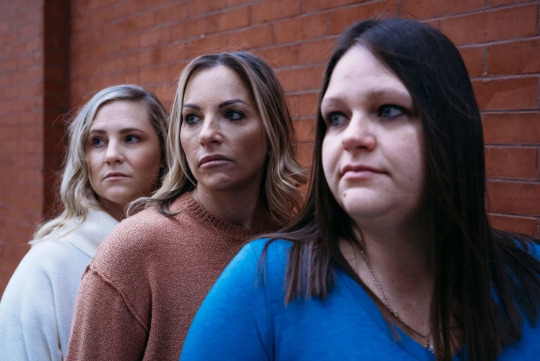
Half-sisters Alyssa Denniston, Victoria Hill and Janine Pierson pose for a portrait in Hartford, Connecticut. The three of them say they — and at least 20 others — all share a biological father, Dr. Burton Caldwell. Laura Oliverio/CNN
Janine Pierson, a social worker, thought she was an only child until she took a 23andMe test in the summer of 2022 and was floored to learn she had 19 siblings. (That number has since grown to 22.)
“It was like my entire life just came to this screeching halt,” she told CNN.
When she learned through one of her siblings that Caldwell was the likely father, Pierson said she immediately phoned her mom, who was stunned.
“We both just cried for a few minutes because it just felt like such a violation,” Pierson said.
Pierson said she decided to pursue the lawsuit even though she knows the lack of a fertility-fraud law in Connecticut could pose a challenge.
“It shouldn’t just be, you know, the Wild West where these doctors can just do whatever it is that they want,” she said.
Hill is watching her newly discovered half-sister’s case closely.
For her, the first surprise was learning the dad she grew up with wasn’t her biological father. Although her mom had told her when Hill was younger that she’d sought help conceiving at a fertility clinic, she also said – falsely – that the doctor had used her dad’s sperm.
When Hill learned that the biological father appeared to be Caldwell a few years ago, she contacted lawyers to inquire about filing a suit, but was told she doesn’t have much of a case, so she didn’t pursue it. Now, she said, her statute of limitations is about to expire.
Last year, Hill was hit with another shattering revelation.
In May, she and her three closest friends were celebrating their 20-year high school reunion over dinner.
She was sharing the tale with them of how she learned about her biological father. Everyone was captivated, except one person – her former boyfriend. He looked like he was turning something over in his head. Then he noted that his parents, too, had sought help conceiving from a fertility clinic.
A couple months later, in July, as Hill was leaving for a summer vacation with her husband and two young children, the ex-boyfriend texted her a screenshot showing their 23andMe connection.
“You are my sister,” he said.
Fertility industry regulations in US lax relative to other countries
Hill’s high school boyfriend isn’t the only person she knew in the community who turned out to be a sibling.
“I have slept with my half-sibling,” Hill said. “I went to elementary school with another.”
What’s more, Hill said, back in the early 2000s, she lived across the street from a deli in Norwalk she often went to that was owned by twins who she later learned are her siblings.
Pierson, too, discovered recently that she’d crossed paths with a sibling long ago. She said she has a group photo from when she was a kid at summer camp that shows her on a stage and a boy in the audience. In 2022, she learned that he is her older half-brother.
“Within 20 feet of one another, and we have no idea,” she said.
In general, the bigger the sibling pool, the greater the risk of accidental incest – regardless of whether fertility fraud came into play.
“I don’t date people my age. I can’t do it,” said Jamie LeRose, a 23-year-old singer from New Jersey who has at least 150 siblings from a regular sperm donor, not a doctor. “I look at people my age and I’m automatically unattracted to them because I just, I go, that could be my sibling.”
With this in mind, activists also often advocate for laws that cap the number of siblings per donor – and that do away with donor anonymity. (Neither of these restrictions are included in the proposed federal bill.)
Other countries have instituted such regulations. Norway for instance limits the number of children to eight; Germany, to 15. Germany and the UK have banished anonymity at sperm banks.
The United States government has no such requirements – and the professional association that represents the fertility industry wants to keep it that way.
“What we have not done very much in this country is pass regulations about who gets to have children,” said Sean Tipton, the chief advocacy and policy officer for the American Society for Reproductive Medicine. “If you’re going to say you should only be able to have 50 children, that’s fine. But that should apply to everybody. It shouldn’t apply just to sperm donors.”
Regarding the concern among donor-conceived people about accidental incest, Tipton added, “if you want to be sure that before you have children with somebody, you can run DNA tests to make sure you’re not related.”
The ASRM, which often clashes with donor-conceived activists, has not taken a stance on the federal bill, Tipton told CNN.
The organization does offer nonbinding guidelines that address concerns about incest, recommending for instance no more than 25 births per donor in a population of 800,000.
Although most of the donor-conceived people who spoke with CNN for this story said they wanted to see legislative change, they also described an emotional aspect of the topic that no new law or regulation could begin to quell: a yearning to better understand one’s origins and identity. For Pierson, it was this desire, coupled with a mix of anger and curiosity, that compelled her to pay Caldwell an unannounced visit one day in 2022 – weeks after she’d learned he was most likely her biological father.
Confronting Caldwell
“I woke up that day and I had decided I didn’t want to call him,” Pierson said. “I didn’t want to give him the opportunity to say no. So I just drove directly to his house from work.”
Pierson, who lived in Cheshire at the time, describes an experience that was equal parts surreal and awkward.
After an hourlong trip, she pulled up to a large, stately house with a long driveway not far from the Connecticut coast. When she knocked on the door, nobody answered. But when a neighbor stopped by to drop something off, Caldwell opened the door. Seizing the moment, Pierson introduced herself. He let her in.
Laying eyes for the first time on her biological father, Pierson, 36, saw a man in his 80s with a slight tremor due to Parkinson’s, sporting a blue golf shirt.
He invited her inside and they sat at his dining room table.
Caldwell, she said, didn’t seem surprised – likely because Hill had made a similar visit a couple of years earlier.
“He was not in any way apologetic,” Pierson said, but she added that he did not deny using his own sperm when working in the 1980s at a New Haven clinic. She said Caldwell confessed that he “never gave it the thought that he should have … that there would be so many (children), and that it would have any kind of an impact on us.”
Pierson said Caldwell asked her questions that gave her pause.
“One thing that really has always bothered me is that he asked me how many grandchildren he had,” she said. “And he was very curious about my scholastic achievements and what I made of myself. … Like how intelligent I was, basically.”
She said their conversation ended abruptly when, looking uncomfortable, Caldwell stood up, which she took as a signal that the visit was over. Before parting ways, she asked if he would pose for a photo with her. He consented.
“I knew it would be the only time that I actually ever had that opportunity to take a picture,” she said. “Not that I wanted like a relationship with him in any way because – it was just like mixed of emotions of, you know, like, I despise you, but at the same time, I’m grateful to be here.”
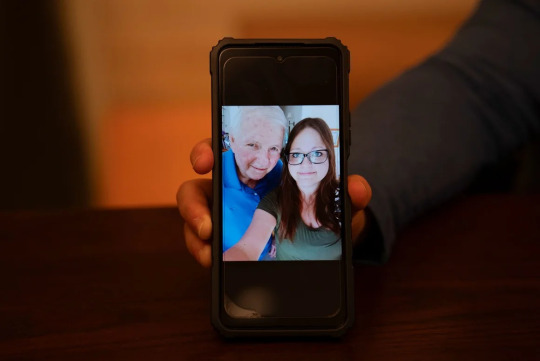
Janine Pierson displays a selfie she took with Caldwell on her phone in Hartford, Connecticut. Pierson took the photo during a visit with Caldwell in 2022 and it is the only photograph she has with him. Laura Oliverio/CNN
#usa#Fertility industry#Burton Caldwell#Fertility fraud#huge groups of siblings made possible in part by a lack of regulation#Accidental incest#Most states have no laws against fertility fraud#huge sibling pods#unethical doctors#unreachable biological fathers#a lack of information about their biological family’s medical history#Nail salons are more regulated than the fertility industry#At least 80 doctors have used their own sperm to impregnate their patients#Marvin Yussman#Dr. Donald Cline fathered at least 90 children#Protecting Families from Fertility Fraud Act still hasn't passed into law#wrongful life#OBGYN Narendra Tohan is still practicing#Large sibling pods in the same community#Norway limits the number of donor conceived children to eight#Germany limits donor conceived children to 15#Germany and the UK have banished anonymity at sperm banks
16 notes
·
View notes
Text
I think it is probably Fucked Up that there are blog posts I wrote for stuff like "How To Use chgrp And chmod To Fix A Common Problem" or "How To SFTP Into The Webbed Site" over a decade ago - primarily for my own reference and that of like 2-3 people I knew personally - that people are still fucking sharing around on message boards and Discord, finding via Google, etc etc. A tutorial I wrote for a specific task in a now-abandoned piece of gamedev software has been translated into at least two languages.
Like, there are people out there learning tech skills on my old blog with the broken anime backgrounds, INSTEAD of in the documentation hosted by Google or MS or textbook publishers. And there are many abandoned blogs, often with anime backgrounds, through which people are learning things that are not made clear enough to them in more-official educational sources. Some of these posts must now be accessed via Wayback. That is Fucked Up. Tech education... is Fucked Up. This is my thesis.
#i need a grant#i also need someone to fix my roof and windows#i need apple google and ms to go under. now. immediately#better arthritis medication#antitrust regulation
37 notes
·
View notes
Text
Sensory regulation headcannons- Linked Universe Edition
Wild- He craves proprioceptive input. Deep pressure squeezes on his arms and shoulders, crashing into stuff, landing from high places, when Wolfie flops on top of him and weighs him down into his bones. Wild looks for physical forces to remind him he’s in his body. Let’s not talk about how close he stands to bombs solely for the shockwave. Wild also uses tactile senses as regulation, worrying ends of clothes, fingers gliding over different textured rocks he’s filled his pockets with, touch drifting over his scars, cataloguing bumps and ridges.
Hyrule- Also very proprioceptively inclined, he likes the feeling of pressure in his joints when he runs and skips, long bear hugs, firm touches. Deep pressure given through touch from others is his favorite, this poor guy is so touch starved. He likes visual sights as regulation to, watching clouds change, his own fingers dance in front of his face, bugs and fairies flying around.
Legend- His regulator is sound. Heart beats, tongue clicks, finger taps against his scabbard, clinks and clanks made by his copious amount of gear. When he’s at home he listens for the sound of Ravio tinkering around the house, he’ll sit in the same room or the one adjacent to hear him better.
Wind- Vestibular regulation all. day. long. The rocking and rolling of ships is calming as is twirling himself up tight in a sail and letting gravity roll him to the ground. Spinning in circles and hanging upside down are common replacements when he’s on land. Wind is also quite taken by sound; he loves whistling, rhythmic chants and shanties, creaking wood, tapping, humming. All are very helpful to keep him focused and on task.
Twilight- Much like Wild he’s prop and tactile regulation. Loves rough play, wrestling, hugs and cuddles are also great. Fingers running through his hair, deep pressure pats to his back, and running a brush up his arms and legs are good for when he gets overwhelmed.
Sky- Vestibular! Barrel rolls on his loft wing are his favorite thing as is anything involving being upside down. He also regulates well with sound but in the opposite direction of the others. It needs to be quiet. If it’s quiet he can do most things, to loud and he’s over stimulated and will shut down. That happened a lot in knight school until, Zelda made him earmuffs one winter and he hadn’t taken them off until they got destroyed on his quest.
Four- He runs the gambit of all senses depending on which color he’s feeling most like at the moment. Sometimes he wants lots of touch, other times he’ll want complete darkness. Sometimes he can’t stand to be alone and others if someone gets near him he’ll snap.
Warriors- Visual regulation, he counts his men usually. When he’s with the chain he counts them instead which often turns into an eye spy game in Hyrule and Wild’s case. It means he’s commonly the first to tell when someone is missing. He also loves watching fires and rivers because of the constant movement.
Time- Vestibular regulation, he did a lot of climbing and balancing during his childhood and the need to continue doing that has only grown. If he sees an uneven surface he will walk on it, on his hands preferably. The first time he gave in and did it on a log in front of the chain they were so shocked they didn’t ask about it for a solid week. After that it was a never ending stream of questions. He also take a lot of reassurance from tactile regulators. He runs his fingers over the grains of his mask collection and pats shoulders to feel the fabrics each person is wearing- this is especially useful with the chain as coming from different eras means the weave of their clothes is all slightly different.
#Was thinking to hard at work and came up with these#background: I am an occupational therapist#lots of sensory screens#also I just thought this would be fun#everyone regulates just some of us regulate more than others or in more obvious ways#chunking my job at my hobby to see what sticks#linkeduniverse#linked universe#lu legend#lu twilight#lu time#lu warriors#lu wild#lu hyrule#lu sky#ani has thoughts#about the chain and how they deal with stress and what they do to calm down#hopefully I explained the medical terms well enough?#scream at me if I didn’t haha
151 notes
·
View notes
Text
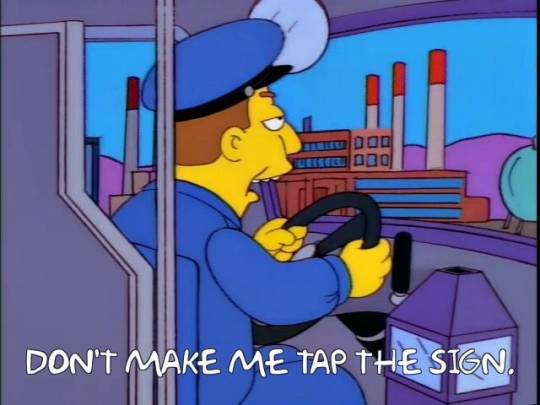
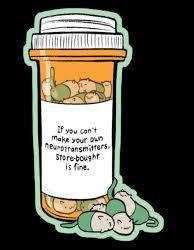
#stop demonizing adhd drugs#congratulations to drugs for winning the war on drugs#cannabis is medicine#being high is not a bad thing#better living through modern chemistry#fibromyalgia and dopamine depletion#adhd and dopamine regulation#adhd and caffeine#we can't all be neurotypical karen#don't make me tap the sign#if you can't make your own neurotransmitters store bought is fine#new age bullshit for the next generation#we know better now#drugs are good#medication is good#don't tell me what to do#gen x annoyed with all the rest of you t shirt
30 notes
·
View notes
